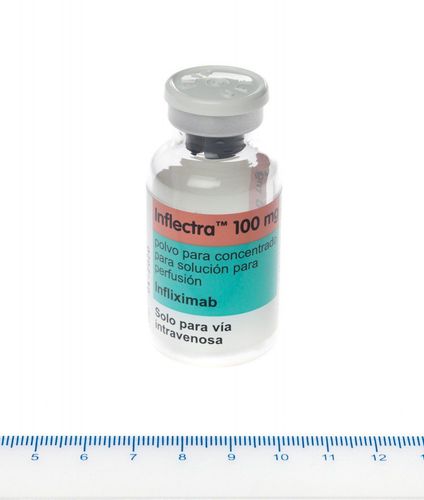This is an automatically translated article.
Apriso is used in the treatment of ulcerative colitis. Apriso helps relieve symptoms of ulcerative colitis including diarrhea, rectal bleeding, and abdominal pain. Apriso works by reducing swelling in the colon.
1. What is Apriso? Uses of the drug Apriso
The main ingredient in Apriso is Mesalamine, which belongs to a group of drugs called Aminosalicylates. The drug affects a substance in the body that causes inflammation, tissue damage, and diarrhea.Uses Apriso is to treat mild to moderate ulcerative colitis in people 18 years of age and older. Apriso is also used to prevent signs of ulcerative colitis from recurring.
When using the drug, you should inform your doctor immediately if you have severe stomach pain, stomach cramps, bloody diarrhea or possibly with fever, headache and skin rash.
2. Notes before taking Apriso
You should not use Apriso if you are allergic to Mesalamine, Aspirin, Sulfasalazine or Salicylate. To make sure Apriso is safe for you, tell your doctor if you have:
Specific blockage in your stomach or intestines such as pyloric stenosis; Skin conditions such as eczema or dermatitis ; Kidney disease or liver disease. Apriso most likely contains the active ingredient aspartame. If you have phenylketonuria (PKU) or any other condition that requires you to limit or avoid the use of Aspartame/phenylalanine in your diet.
Currently, there are no studies to prove whether or not Apriso is harmful to an unborn baby. If you are pregnant or planning to become pregnant, you should inform your doctor about the effective use of the drug.
Untreated or uncontrolled ulcerative colitis during pregnancy can cause complications such as low birth weight or premature birth. The benefits of treating your asthma condition may outweigh any risks to the baby.
While using active ingredient Mesalamine may not be safe for breastfeeding women. You need to ask your doctor about any risks. If you are breastfeeding, tell your treating doctor if you notice diarrhea in your nursing baby.
3. How to use Apriso
Usual Dosage: Apriso 375 mg extended-release capsule: 1.5 g (4 capsules) orally once a day in the morning. Use Apriso exactly as prescribed by your doctor. Follow all directions on the medication label and leaflet. Note that do not take this medicine in larger or smaller amounts or for longer than recommended. Take Apriso with a full glass of water. Apriso is not affected by food and can be taken with or without food. Swallow the capsule whole, do not crush, break, or chew an Apriso extended-release capsule. Extended-release capsules are specially formulated to release medicine after it has passed through your stomach into your intestines. Opening the capsule may cause the drug to be released too early in the digestive tract. Contact your treating doctor if your ulcerative colitis symptoms do not improve, or if your condition gets worse. Apriso may cause abnormal results with certain laboratory tests. Store or store the medication at room temperature away from moisture or extreme heat. Read all the information, medication guides and leaflets provided to you. Ask your doctor or clinical pharmacist if you have any questions. In case of missed dose: Take the dose as soon as you remember. You need to skip the missed dose if it is almost time for your next scheduled dose. Do not take an extra dose of medicine to make up for a missed dose.
In case of overdose: You need to immediately contact medical facilities for timely and proper treatment.
4. What should be avoided when using Apriso?
You need to contact your doctor before using antacids and only use the type that your doctor recommends. Some antacids can make it harder for your body to absorb the active ingredient Mesalamine.
5. Undesirable effects of Apriso
Pay attention to watch for signs of an allergic reaction to Apriso, including urticaria; shortness of breath; swelling of your face, lips, tongue, or throat.
Stop using Apriso right away and call your doctor right away if you have any of the following problems:
Burning pain in the epigastrium, stomach pain, stomach cramps Fever, headache, skin rash ; Bloody or tarry stools, coughing up blood or vomit that looks like coffee grounds; kidney problems including clinical signs of urinating little or no, pain or difficulty urinating, swelling in the feet or ankles, feeling tired or often short of breath; Liver problems with clinical signs such as loss of appetite, upper stomach pain, fatigue, easy bruising or bleeding, dark urine, clay-colored stools, yellowing of the skin or eyes. In the elderly, there may be a low white blood cell count when using the drug.
This is not a complete list of undesirable effects. When you experience any other unwanted effects, you need to immediately contact your treating doctor for specific and appropriate solutions.
6. Apriso drug interactions
Apriso can be harmful to your kidneys, especially if you also use certain drugs to treat infections, cancer, osteoporosis, organ transplant rejection, etc. Patients need to inform them. tell your doctor about all your current medicines and any you start or stop using, especially:
Azathioprine; Mercury; Nonsteroidal anti-inflammatory drugs (NSAIDs) such as aspirin, ibuprofen (Advil, Motrin), naproxen (Aleve), celecoxib, diclofenac, indomethacin, meloxicam, and others. The above list of drugs that can cause interactions with Apriso is not exhaustive. Other drugs may also interact with Mesalamine, including prescription and over-the-counter medicines, vitamins, and herbal products. Not all possible drug interactions are listed in this medication guide.
Please dial HOTLINE for more information or register for an appointment HERE. Download MyVinmec app to make appointments faster and to manage your bookings easily.













